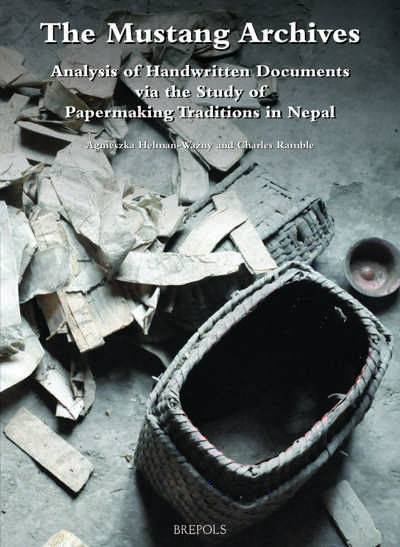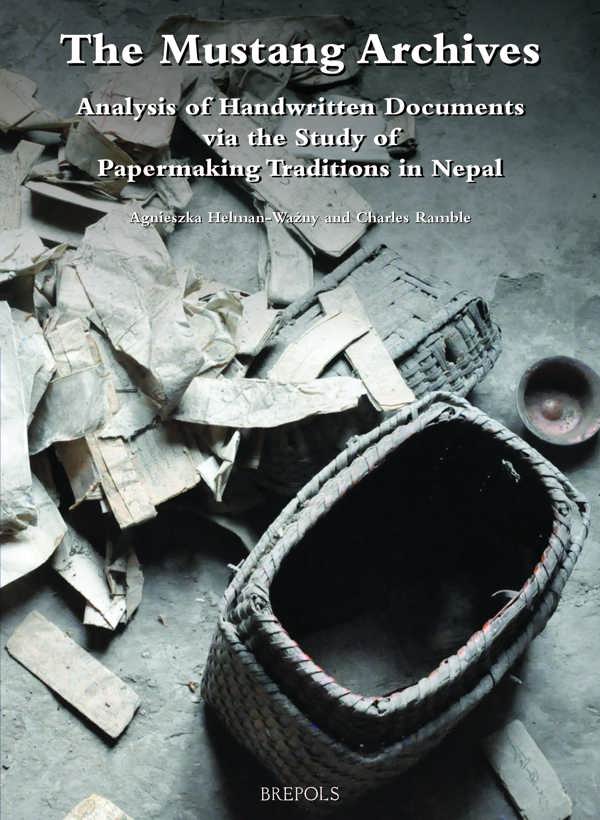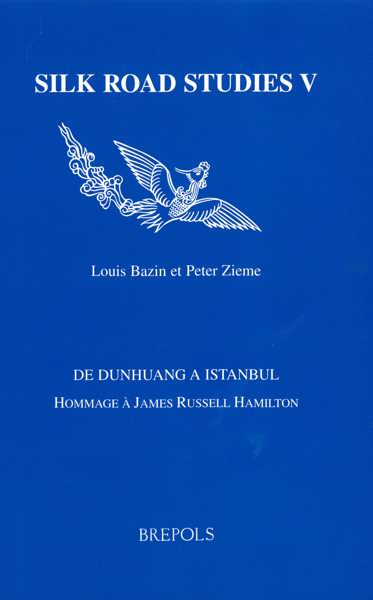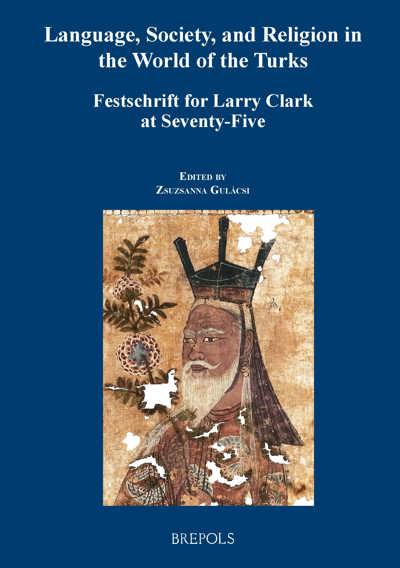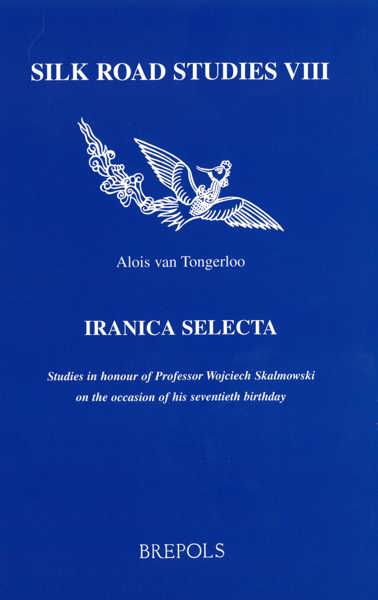
The Mustang Archives
Analysis of Handwritten Documents via the Study of Papermaking Traditions in Nepal
Agnieszka Helman-Wazny, Charles Ramble
- Pages: 338 p.
- Size:210 x 297 mm
- Illustrations:178 col., 4 tables b/w., 5 maps b/w
- Language(s):English
- Publication Year:2022
- € 100,00 EXCL. VAT RETAIL PRICE
- ISBN: 978-2-503-58534-5
- Paperback
- Available
The book explores locally-produced documents from private and community archives of Mustang, Nepal. These documents are an important corpus of material for the reconstruction of Mustang’s social history, and are also an extremely valuable source of knowledge about local paper- and book-production.
Agnieszka Helman-Ważny (Ph.D. 2007) is a paper and book specialist at the Centre for the Study of Manuscript Cultures (CSMC), University of Hamburg, Germany and the Department of Books and Media History, Faculty of Journalism, Information and Book Studies (WDIiB), University of Warsaw, Poland. Her publications include monographs and articles on the history of the regional production and usage of paper and books in Tibet and Central Asia, including The Archaeology of Tibetan Books (Brill, 2014).
Charles Ramble (D.Phil. 1985) is directeur d’études at the EPHE, PSL University, Paris, and a member of the East Asian Civilizations Research Centre (CRCAO). His publications include several volumes on the history and culture of Mustang, Nepal.
The Mustang Archives explores locally produced documents from Mustang, Nepal, mostly dated to the year within the last two centuries. The archives are from five communities: Geling, Lubrak, Jharkot, Upper Tshognam and Lower Tshognam. The documents – some from private households, others the communal property of villages – were preserved in wooden or metal boxes, baskets or bags as a loose assemblage of folded sheets of paper. They are of several different kinds, including contracts, petitions, edicts, letters, dispute resolutions, tax records and community regulations. Besides being an important source of information for the reconstruction of Mustang’s social history, are an extremely valuable source of knowledge about local paper- and book-production. It is not only their content but their material that provides information essential to tracing their past history, clarifying, among other things, the economic factors that shaped their production.
Introduction
Chapter 1. Methods: A cross-disciplinary approach
Chapter 2. A brief history of Mustang and its religious environment.
Chapter 3. Local archives under study: histories and geographical locations.
Chapter 4. Archival documents as a part of the tangible Cultural Heritage of Mustang.
Chapter 5. Codicological study of the documents.
Chapter 6. Tibetan papermaking traditions in Nepal: A transfer of technological knowledge in Central Asian history.
Chapter 7. Paper of Mustang: A history from scratch.
Appendix 1. Template for the descriptions of documents.
Appendix 2. Document content summaries with basic codicological descriptions.
Appendix 3. Summaries of interviews with papermakers, craftsmen and traders. (web lines with interviews itself)
